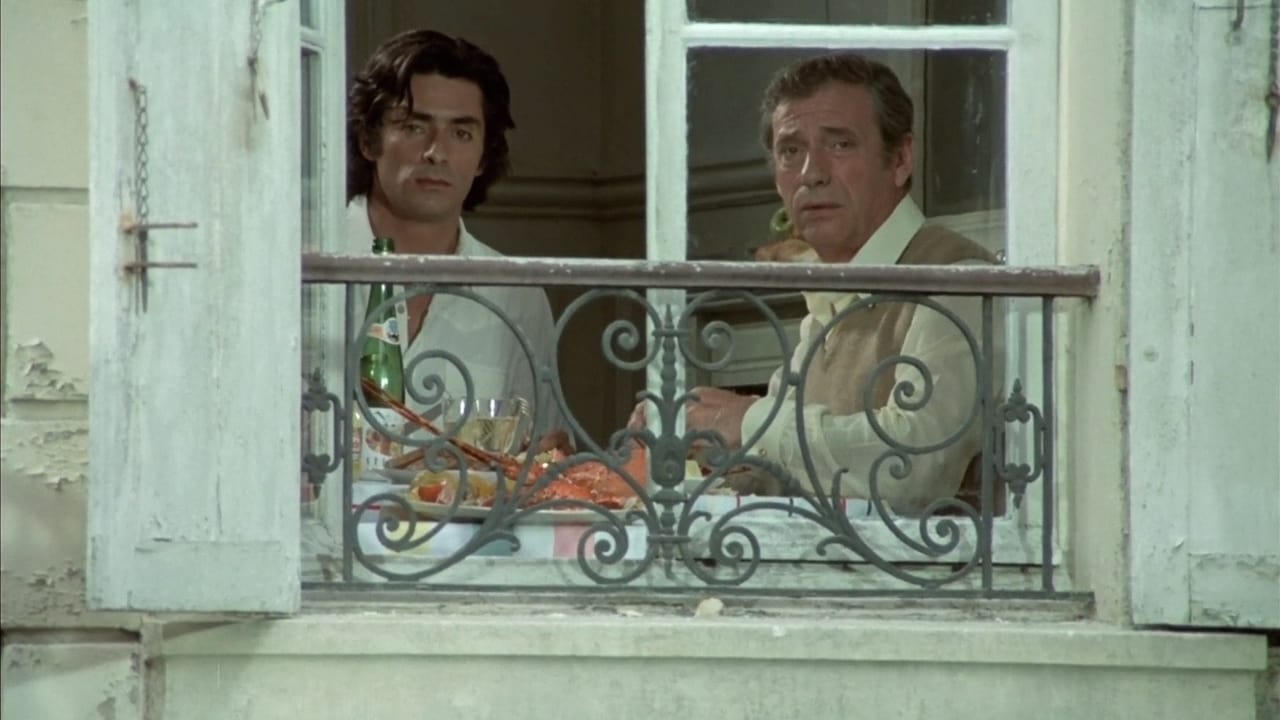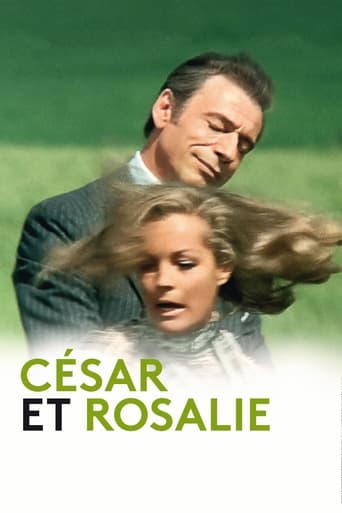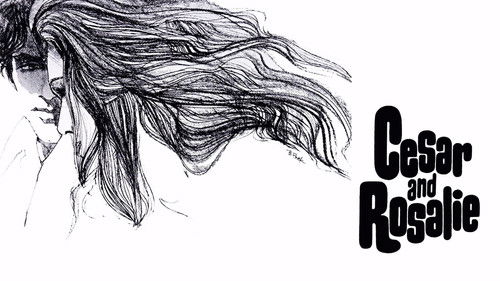


The story, direction, characters, and writing/dialogue is akin to taking a tranquilizer shot to the neck, but everything else was so well done.
... View MoreIt's a good bad... and worth a popcorn matinée. While it's easy to lament what could have been...
... View MoreThere is, somehow, an interesting story here, as well as some good acting. There are also some good scenes
... View MoreThrough painfully honest and emotional moments, the movie becomes irresistibly relatable
... View MoreExcellent movie a great love story the wonderful and inmortal Romy Schneider in a love triangle between Yves Montand and the very handsome Sami Frey by the way sami frey become famous in the 1960s when he became the lover of brigitte bardot, i love this movie as well every movie Romy Schneider was, to me she was a very special actress very beautiful and talented, Romy Schneider at this time was at the peak of her fame she cant do no wrong and in this movie she did not, Sami Frey became famous in the early sixties when he was for a short time Brigitte Bardot boyfriend from then on he became a major french star and even today he still working but this movie is about dear Romy she is fantastic here don't miss IT Yves Montand was a major international singer and actor and the husband of Simone Signoret and in the early 70s he too was at the peak of his fame as you may know this movie was a big hit all over the world
... View MoreThe acting in this movie is excellent--particularly Yves Montand as the middle aged scrap dealer. David is also well-played as are all the other supporting players. But the character of Rosalie was just confusing and flaky and this tended to pull the movie down from time to time. Her character just didn't make sense--acting impulsively and without clear motivation. It was like many of her moves were based on a whim and that made it hard to care about her or see what David or Cesar saw in her (other than her great looks). Yes I could see it would be tough to love two people at the same time but the ways she reacted just defied logic. It's really a shame, as a re-write of the script could have made this a MUCH better film.
... View MoreI was amazed from this film! Not only because I usually like Yves Montand and Romy Schneider, but because above all this is a film about human feelings and reactions.Claude Sautet's works are not intellectual movies, but they have the quality of showing people in real life, with their strength and their weakness, we can find people who laugh and cry. They are films about life, there isn't necessarily an happy ending. (In Hollywood they're not able to talk to us about REAL persons.) Simple, isn't it? A director normally shows life, you may say. But in reality I don't think it's so easy. The risk is to talk about people with exaggerations and melodramatic elements. In movies like "César et Rosalie" we find common situations, people with whom we can identify and share feelings.Here we have a woman who can't choose between two men... (Ingmar Bergman has another approach, in choosing psychological and darker aspects of people. It's another valid method.) I chose to comment this film because it's an example of intimate cinema, a way of telling stories which talk to hearts.
... View MoreI saw "Cesar and Rosalie" at the Jerusalem Cinematheque. I had only seen Claude Sautet's later movies (which I loved), and was unsure what to expect. The cinema was packed full of people, and some of the older members of the audience were laughing out loud almost immediately at Yves Montand's antics. I was a bit more restrained. But it didn't take long for me to find myself laughing as well. And not only me; it seemed like everyone there was in good spirits, young and old alike. Yves Montand's acting was incredible, Romy Schneider is terribly desirable, and the film just floated along. Definitely worth seeing, both if you're a Claude Sautet fan or if you want a charming movie about the interesting relationship which develops between the movie's three protagonists.
... View More